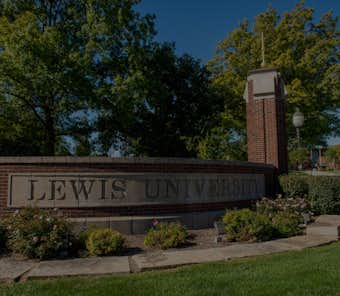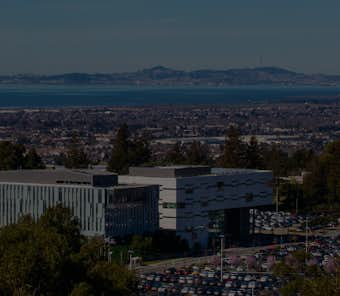
Study literacy abroad
Find programs that match your eligibility and aspirations then apply with reduced application fees, a free assessment and access to a dedicated advisor.
Find your perfect literacy programs abroad
Find literacy programs you love that match your needs & aspirations, where you stand a high chance of acceptance.
-

PhD programs in
literacyNo programs listed
Literacy degrees abroad
By studying a literacy program, you’ll learn how to improve the reading and writing abilities of individuals.
As well as studying the theory and research behind literacy pedagogy, you’ll develop the practical teaching skills needed to improve learning outcomes. You’ll learn about the components and design of literacy curriculums, and keep up to date with trends and research in the sector.
Despite global advances in education, millions of children and adults across the world remain illiterate. Studying abroad is an eye-opening and fulfilling experience that’ll help you to develop as a practitioner by supporting individuals to unlock their potential.

Why use Studee?
-
Find your ideal program
Filter 10,000s of programs down to a shortlist perfect for you, where you have a strong chance of getting admitted
-
Apply online via Studee
Complete our application form and enjoy reduced application fees and access to unique Studee scholarships for many universities
-
We assess within 48hrs
We complete an 85-point assessment within 2 business days, help you with improvements then submit to your university
-
University offer in 2-4 weeks
We chase the university for your admission decision and keep you updated. We all celebrate your admission!
All our services are 100% free as we're funded by universities. You pay deposits and tuition fees directly to the university.

Literacy program structure
Most literacy degrees are only offered at the graduate level. To enroll in these programs, you’ll need to have a bachelor’s degree in an education-related field. If you hold an undergraduate degree in an unrelated discipline, you might need to earn an accredited teaching qualification before being accepted.
Master’s degrees in literacy require up to two years of study. They blend theoretical, research, and practical modules to provide students with an in-depth understanding of the field.
Graduate certificates are shorter programs of study that typically take a year or less to finish. They’re more vocational and practically-focused than master’s degrees, offering students the chance to specialize in a specific branch of literacy.
If you’re still interested in learning more, you could enroll in a doctorate program. PhDs allow you to conduct original research and contribute to academic discussions in the field. They can take anywhere from three to seven years to complete.
As well as theoretical lectures, seminars, and tutorials, you’ll attend and lead practical lessons and workshops. Examination methods include essays, research projects, presentations, and practical assessments.
Postgraduate programs typically contain lots of elective modules so that you can easily tailor your degree. However, here are some of the most common core units offered at universities:
- Foundations of literacy
- Fundamentals of literacy education
- Literacy theory
- Teaching reading
- Teaching writing
- Trends and issues in literacy research
- Literacy curriculum development and design
- Literacy assessment and intervention
Best countries to study literacy
Literacy study abroad programs
Literacy undergraduate programs
Bachelor's in literacy
-
English: Writing, Rhetorics and Literacies (Tempe Campus) - BA Arizona State University (in partnership with Kaplan International), USA
- Program type
- Bachelor's
- Duration
- 4 years
- Annual tuition fee
-
32,760 USD
Fees are displayed in the university's local currency
- Start date
- August, January
-

English: Rhetoric and Literacy - BA Colorado State University, USA
- Program type
- Bachelor's
- Duration
- 4 years
- Annual tuition fee
-
33,973 USD
Fees are displayed in the university's local currency
- Start date
- January, August
-
English: English Language and Literacies - BA California State University, East Bay, USA
- Program type
- Bachelor's
- Duration
- 4 years
- Annual tuition fee
-
16,509 USD
Fees are displayed in the university's local currency
- Start date
- August, January
-
Language, Literacy, and Cultural Studies - BAEd Western Washington University, USA
- Program type
- Bachelor's
- Duration
- 4 years
- Annual tuition fee
-
26,562 USD
Fees are displayed in the university's local currency
- Start date
- January, September
Literacy graduate programs
Master's in literacy
-

Curriculum and Instruction: Literacy and English Language Learning - MEd Lewis University, USA
- Program type
- Master's
- Duration
- 20 months
- Annual tuition fee
-
16,200 USD
Fees are displayed in the university's local currency
- Start date
- August, January
-

Education: Literacy - MEd University of Canterbury, New Zealand
- Program type
- Master's
- Duration
- 1 year
- Annual tuition fee
-
32,000 NZD
Fees are displayed in the university's local currency
- Start date
- January, February, March
-
Language and Literacy - MEd Western Washington University, USA
- Program type
- Master's
- Duration
- 2 years
- Annual tuition fee
-
26,574 USD
Fees are displayed in the university's local currency
- Start date
- January, September
-
Literacy - MEd Central Washington University, USA
- Program type
- Master's
- Duration
- 2 years
- Annual tuition fee
-
23,652 USD
Fees are displayed in the university's local currency
- Start date
- September, January
-

Literacy - MEd Middle Tennessee State University, USA
- Program type
- Master's
- Duration
- 2 years
- Annual tuition fee
-
26,172 USD
Fees are displayed in the university's local currency
- Start date
- August, January
Future literacy careers
With a degree in literacy, you’ll be prepared for several challenging but rewarding roles in education and public policy.
You’ll have the knowledge and expertise to make a real difference to people’s lives through roles like:
- Teacher
- Special educational needs teacher
- Literacy coach
- Curriculum developer
- Adult literacy educator
- Reading specialist
- Policy advocate
- Literacy education editor
Gathering relevant work experience is one of the best ways to make your CV shine. Get in touch with your university’s careers office to see how they can support you with placement and internship opportunities.















